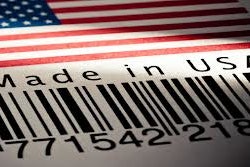Signed into law on the first days of 2011, the Food Safety Modernization Act (FSMA) represents a major shift in terms of food compliance and safety. It essentially made into law what the best food companies were already doing, creating food safety programs based on prevention, not response. And while no food company wants to get a fine, conduct a recall or shut down a facility, those aren’t the only reasons to comply with the FSMA.
Viewed as an opportunity, FSMA compliance can be a chance for pervasive business improvements at your food company.
Compliance can lead to winning very large customers.
There exists a real concentration in the food retail space; more and more consumers are purchasing their food products through mass merchandisers like Costco and Wal-Mart. Dealing with the big guys requires a high level of compliance. Accreditation from a third-party auditor is becoming a prerequisite for doing business with the largest retailers; this can separate your company from the chaff. Ask the manufacturers of Almondina® cookies & Toastees™. “Our successful accreditation for GMP and food safety from a third-party auditor won us the business of Costco,” says Tamar Markham, VP of Finance for Almondina.
| The owners of Almondina |
Cost containment.
Your company can expect a significant reduction in costs associated with wasted inventory, product recalls and human errors after jumping through the hoops of compliance. “The certifying body asked about our software system and processes, such as how do we manage inventory, expiration analysis, traceability and quality procedures,” says Nancy Post, Technical Director at G.S. Dunn, the world’s largest dry mustard miller, which received Level 2 SQF certification in 2013.
Supply chain visibility like never before.
Now that the FDA can invoke mandatory recalls for all food products, everyone on the supply chain has to keep good records on where raw materials come from, which customers receive finished products, etc. The result: Distributors can get greater visibility into product quality, and everyone can see who has touched the product and when. Using QR code technology, your customers, or even consumers, can gain even greater visibility on where the specific lot of product was manufactured, gain insights into nutritionals, allergens and ingredient declarations — all from the scan using their mobile phones.
Time spent improving process is never time wasted.
Squeezing inefficiencies out of processes equals money in the bank. AsAnn Riddle Garner, CEO of TW Garner Foods, makers of Texas Pete hot sauce, puts it: “We have a ‘6P Principle’ — Processes, Procedures & Paperwork done Properly put Profit in your Pocket!’” Compliance, especially legislative compliance, helps enforce procedures and training.
Effective pricing through improved cost management.
FSMA demands full lot tracking, which provides the opportunity to feed product movement data into a costing system to better understand the true cost of production or warehouse operations. Food processors and distributors have an opportunity to move away from standard or average costing towards lot specific costing — if not for the inventory valuation, at least for the purposes of pricing products for sale.
Product quality improves.
Regulatory compliance ultimately results in tighter, more effective processes and procedures which results in more consistently higher quality products. Food quality compliance reigns, as well as food safety, in global GFSI standards such as BRC and SQF.
Prevention-and-proof pays off.
Regulations focus on minimizing risk through HACCP and responding to incidents through recalls. Compliance helps food companies shift towards an approach to food safety that prevents rather than just reacts to issues.
Stakeholders are satisfied.
Compliance boosts the level of trust and professionalism of your company in the eyes of customers, prospects, vendors, the general public, investors and the public sector. There are too many examples out there of food companies forced into receivership or bankruptcy as a result of a food contamination issue or poorly handled recalls. There are also great examples of food companies that were able to protect their consumers and their brands from long-term impact through proper management, even when dealing with a real threat.
Heather Angus-Lee, a long-time business and trade journalist, now writes for IndustryBuilt. She can be reached at [email protected].























